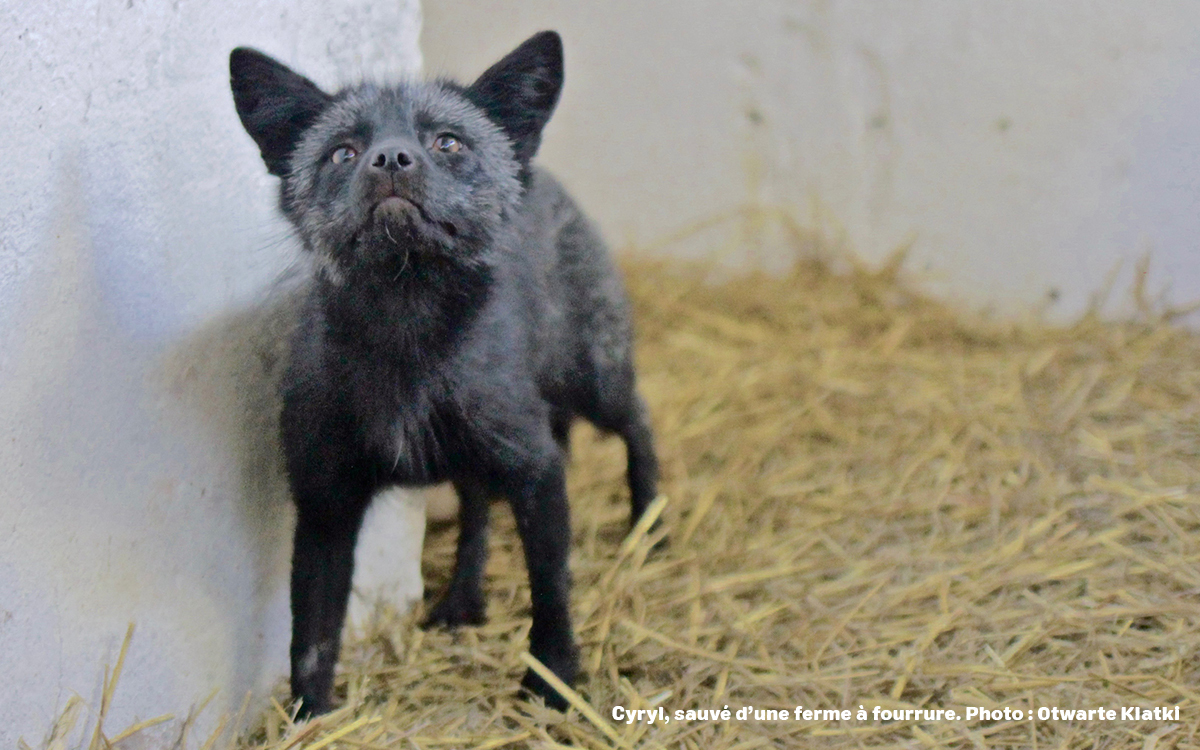

More than 1.7 million EU citizens are calling for the end of the fur trade
The Fur Free Europe European Citizens’ Initiative has ended earlier than expected after having won the support of more than 1.7 million EU citizens. Now it is time for the European Commission to act and to ban this barbaric practice in the whole of the European Union.
Launched on 18 May 2022 with the aim of obtaining one million signatures in one year, the ECI called on the EU to ban animal fur farms and from putting fur that comes from these farms on the market. It reached its goal in less than ten months with the support of more than 80 European activist associations, including several, like One Voice, who are members of the Fur Free Alliance. Yesterday evening, the ECI was officially closed and the signatures will now be sent for validation in accordance with the process before being presented to the European Commission.
As the French representative for Fur Free Alliance, One Voice believes that the number of signatures collected sends a very clear message on behalf of all EU citizens to the European Commission: breeding animals for fur must stop. This practice is not only cruel, it is also bad for the environment and causes serious problems for public health as proven by the hundreds of COVID-19 epidemics among farmed mink.
To date, political leaders from fourteen member states including Italy, France, Estonia, Latvia, and Austria have banned breeding animals for fur. Opinion surveys continue to show that the population is opposed to it, and a growing number of retailers are committing to no longer using fur, the success of which is shown by the Fur Free Retailer programme.
“I am delighted that the Fur Free Europe ECI has garnered so many signatures and I would like to thank all of those who have worked very hard for such a result to be possible. The message sent to the European Commission could not be clearer: it is time to put an end to this barbaric practice and to proclaim fur as defunct in the whole of the European Union”, stated Joh Vinding, Chairman of the Board of Directors at Fur Free Alliance (FFA).
The Initiative collected one million signatures in seven months, beating all records and making this ECI one of the most successful in history with 1,701,892 final signatures six months after its launch. This record number of signatures is the reason for its anticipated closure and represents a powerful message addressed to the European Commission.
The next phase of the process, which will last three months, is the validation of the signatures by member states. Then, the European Commission must take the ECI into consideration and provide a response within six months.
At the meeting of the European Union Council (Agriculture and Fisheries Council) in June 2021, the Netherlands and Austria filed a briefing note, supported by Belgium, Germany, Luxembourg, and Slovakia, requesting that the European Commission forbids breeding animals for fur. The call to ban this practice within the EU for animal welfare, public health, and ethical consideration reasons has been supported by a total of twelve member states during deliberations on the document.
- The complex behavioural needs of wild animals like American mink, foxes, and raccoon dogs cannot be satisfied in fur farms.
- Animal fur farms also present an unacceptable risk for animal and human health, as proven by the COVID-19 pandemic. Hundreds of mink farms throughout Europe and North America were affected by coronavirus epidemics, leading to the mass slaughter of animals and new variants of the virus being revealed to have been transmitted from mink to humans. A recent epidemic of highly pathogenic avian influenza (H5N1) among breeding mink in Spain sparked renewed public health concerns.
- Animal fur farms have a major environmental impact given that the treatment and dying of fur requires the use of toxic chemical products. In terms of soil pollution from toxic metals, fur production is classified among the five most polluting industries. The fur industry also constitutes a serious threat for native biodiversity. American mink and raccoon dogs that have escaped from breeding farms have established populations in the wild and are considered as exotic invasive species having significant negative impacts on native European plant life.
- More than 1500 retailers, including Gucci, Adidas, H&M, and Zara, are committed to a future without fur and have joined the Fur Free Retailer programme.
Translated from the French by Joely Justice